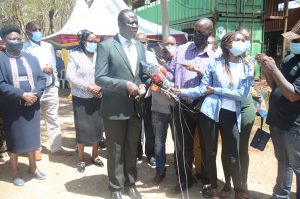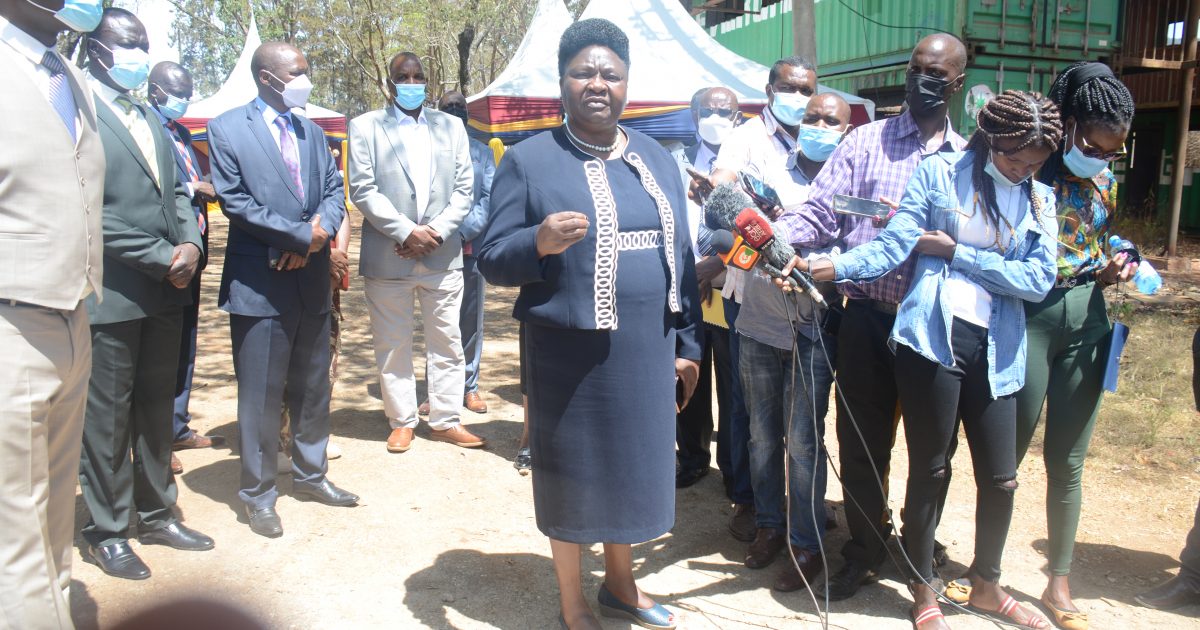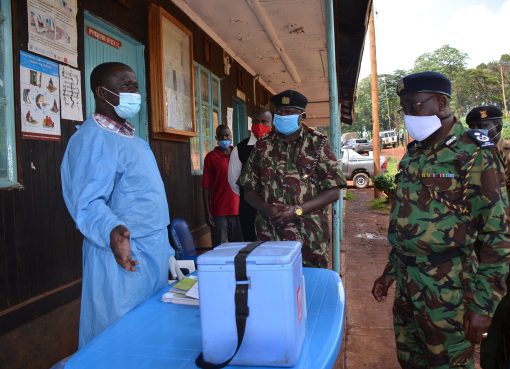National Police Service Commission(NPSC) in conjunction with the Ministry of Health have developed an assessment medical policy that will cover the needs of the police officers injured in the line of duty in the Lower Eastern Region.
Speaking during the launch of the Medical Assessment program at the Machakos County Police Headquarters, the NPSC Vice Chairperson Dr. Alice Otwala said that the commission has appointed a special medical board that will carry out the exercise.

“The commission has appointed a special medical board of doctors to undertake the medical assessment exercise to ensure that the police officers who are affected are back to their normal health,” said Otwala.
Dr. Otwala pointed out that through the program they will be able to formulate policies that will enable the police officers living with disabilities acquired in the line of duty to cope up with health issues comfortably.
“Our intention is to formulate policies that will help the injured and disabled officers to adjust and live a normal life after undergoing the healing processes,” Dr. Otwala noted.
She further revealed that the commission has employed 59 counselors to offer psycho-social support to the officers which will be offered after the officers’ have successfully received the medical attention they require.
“We have employed 59 counsellors who will help the officers to walk through the journey of healing by offering them the mental support they need” Otwala said, noting that some of the police officers experience both internal and external pressures while at work.
Furthermore, Otwala emphasized on the essence of family advice in developing the mental health of police officers citing that police officers ought to get support from their families to enable them recover from cases of stress and depression.
The vice chairpersons’ sentiments were echoed by the Machakos County Commissioner John Ondego who acknowledged the idea of coming up with a policy which will offer maximum support in dealing with the needs of the police officers.
Mr. Ongego expressed the need of considering the welfare of the able bodied officers to increase motivation for efficient service delivery.
“I beseech the police service commission to also look at the welfare of the able bodied officers in order to motivate their work to offer diligent services to the members of the public,” said Ondego.
He also commended the commission for prioritizing the welfare of the injured officers by coming up with more advanced medical programs to add on the existing scheme.
“It is more important to look deeply at the police officers’ medical scheme to address the numerous challenges that they experience. I would like to commend the commission for coming up with a policy that will help in streamlining on how our officers will be medically taken care of,” Ondego added.
Early this month, during an assessment of officers at the Kenya School of Government in Mombasa Dr. Otwala noted that the nature of work of the police officers causes immense stress and danger where some end up getting sick or being disabled due to fatal accidents and attacks.
Dr. Otwala said that the Commission undertook the initiative to provide medical attention to police officers since it’s their major concern to look at the state and welfare of the police who get maimed during travelling and bomb attacks in which some lose some body parts in those accidents.
She said that the launch and sensitization of the medical scheme began in June in Nairobi and Rift Valley areas adding that police suffering from mental health illness would also benefit from the scheme.
NPSC launched the medical assessment scheme targeting sick officers and those who have been injured in the line of duty on the 3rd of September this year.
Led by the commission’s Chairman Eliud Kinuthia, the Commissioners supervised the enrolment of the medical scheme in Nakuru and Uasin Gishu counties.
The Pilot program was to see the first batch of 200 officers from the Rift Valley region listed to benefit from the medical scheme.
The medical scheme is part of the police reforms that were initiated by Interior Cabinet secretary, Dr. Fred Matiang’i.
By Rachael Kilonzo and Conceptah Isanya





